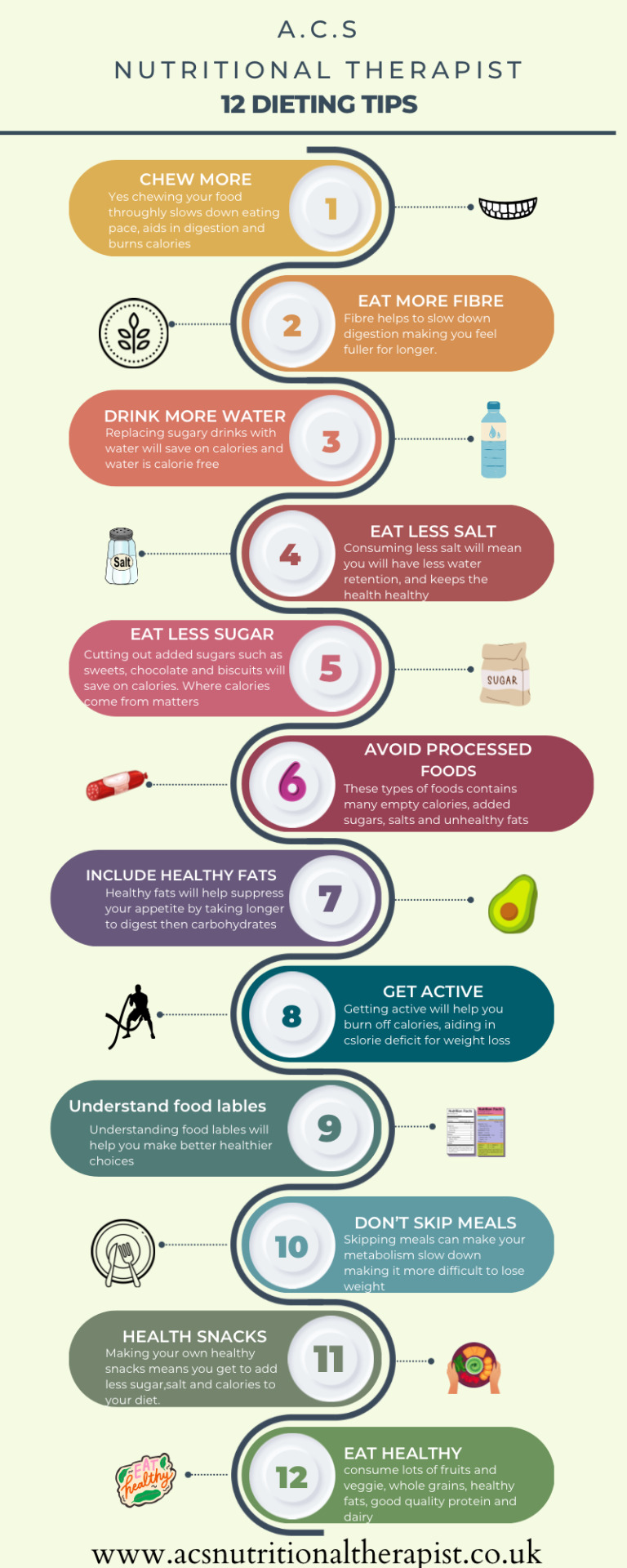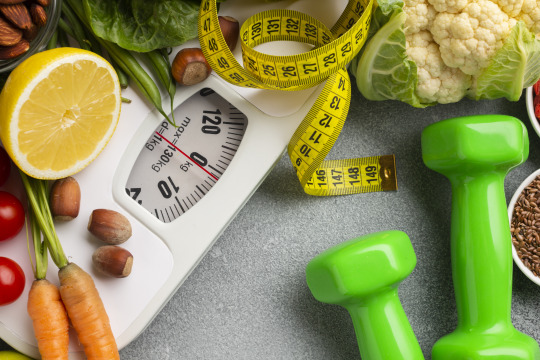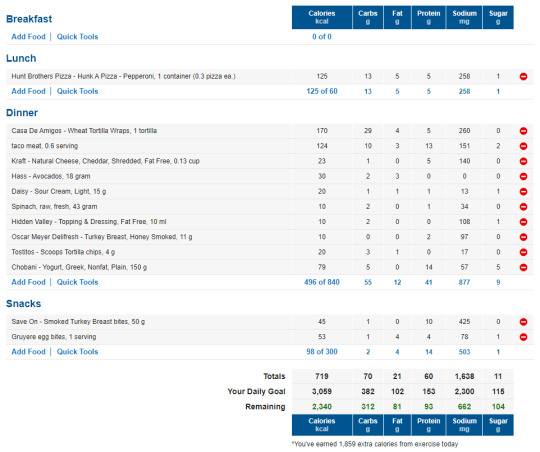#weight management
Text
33 healthy habits for you
Hydrate Regularly
Eat Whole Foods
Mindful Munching
Portion Control
Limit Unhealthy Fats & Sugars
Move Your Body
Strength Training
Take the Stairs
Stretch It Out
Sleep for Success
Digital Detox
Relaxation Techniques
Schedule Self-Care
Connect with Loved Ones
Mindful Moments
Preventive Care
Fuel Your Mind (Learn New Skills)
Practice Gratitude
Morning Meditation
Evening Meditation (Mindfulness)
Volunteer
Join a Club/Group
Breakfast is King
Cook More Meals at Home
Pack Your Lunch
Read Food Labels
Limit Processed Foods
Drink Less Alcohol
Sugar-Free Drinks
Positive Self-Talk
Spend Time in Nature
Laugh More Often
Get Enough Sunlight
follow me for more
#self care#positive mental attitude#productivity#weight management#i need to lose this weight#self improvement#healthy diet#nutrition#health and nutrition#self discovery#workout#gratitude#healing#be kind to yourself#empowerment#growth#boundaries#healing journey#kindness#positive thinking#glow up#it girl energy#optimism#self healing#psychology#self respect#self growth#coqeutte#wellness girl#pink academia
21 notes
·
View notes
Text

#fitness#health#healthy#weight management#weight loss#free recipes#weightlossblog#healthy recipe#nutrition#veganrecipes#blogger#fitfam#website#freehealthtools#healthbenefits#healthblog#healthyeating#healthyhabits#nutrititionkitchen#weightloss#veganism#veganfortheanimals#vegan fitness#vegan health#health blog#bloggingcommunity
64 notes
·
View notes
Text
I am actively having a nervous breakdown because nothing works and I'm constantly just running after everything and trying to put out fires lol.
On another note 'm a fat bitch and have been eating too much these past two days (1200-1500 kcal) and I hate my life. Didn't even track shit lol. Be back on track tomorrow, but lots of love to you all out there who are crushing it!
#diary#update#weight goals#weight management#i wanna lose weight#relationship#weight loss#i need to lose so much weight#i need to lose this weight#eedee tumblr#tw#tw ed but not sheeran#tw ed implied#tw ed sheerant#tw eating issues#tw ed descussion#tw ed sheeran#tw edtwt#tw ana bløg#anor3c1a#tw a4a#tw ana rant
9 notes
·
View notes
Text
What is the right diet for losing fat?

The right diet for losing fat varies from person to person based on individual factors such as age, gender, weight, activity level, and any underlying health conditions. However, there are some general principles that can help:
Caloric Deficit: The most important factor in losing fat is to consume fewer calories than you expend. This creates a caloric deficit, prompting your body to burn stored fat for energy. You can achieve this by reducing your calorie intake, increasing your physical activity, or a combination of both.
Balanced Macronutrients: Your diet should include a balance of carbohydrates, proteins, and fats. Focus on whole, nutrient-dense foods such as fruits, vegetables, lean proteins, whole grains, and healthy fats.
Protein Intake: Protein is crucial for preserving muscle mass while losing fat and can help you feel full and satisfied. Aim to include a source of protein in each meal, such as lean meats, poultry, fish, eggs, dairy products, legumes, tofu, or tempeh.
Healthy Fats: Include sources of healthy fats in your diet, such as avocados, nuts, seeds, olive oil, and fatty fish like salmon. These fats can help keep you full and support overall health.
Complex Carbohydrates: Choose complex carbohydrates over simple ones. Whole grains like quinoa, brown rice, oats, and whole wheat products provide fiber, which can aid in digestion and help you feel fuller for longer periods.
Portion Control: Be mindful of portion sizes to avoid overeating. Use smaller plates, measure your servings, and pay attention to hunger and fullness cues.
Limit Processed Foods and Added Sugars: Minimize your intake of processed foods, sugary snacks, and beverages as they tend to be high in calories and low in nutrients. Opt for whole, unprocessed foods whenever possible.
Stay Hydrated: Drink plenty of water throughout the day. Sometimes, thirst can be mistaken for hunger, leading to unnecessary calorie consumption.
Meal Timing: Some people find success with intermittent fasting or eating within a specific window of time each day. Experiment with different meal timing strategies to see what works best for you.
Consistency and Patience: Losing fat takes time and consistency. Focus on making sustainable changes to your diet and lifestyle rather than seeking quick fixes.
Mindful Eating: Pay attention to your body's hunger and fullness cues. Eat slowly and mindfully, savoring each bite, and stop eating when you feel satisfied, rather than full.
Include Fiber-Rich Foods: Fiber-rich foods such as fruits, vegetables, whole grains, and legumes can help regulate digestion, keep you feeling full, and support overall health.
Limit Liquid Calories: Be cautious of high-calorie beverages such as sugary sodas, fruit juices, and alcoholic beverages, as they can contribute to weight gain without providing satiety. Opt for water, herbal tea, or other low-calorie options instead.
Be Flexible: Allow for flexibility in your diet to accommodate social occasions or cravings. It's okay to enjoy treats in moderation, as long as they fit within your overall calorie and macronutrient goals.
Track Your Progress: Keep track of your food intake and progress toward your goals using a food diary, mobile app, or other tracking tools. This can help you stay accountable and make adjustments as needed.
Prioritize Sleep: Aim for 7-9 hours of quality sleep per night. Inadequate sleep can disrupt hunger hormones and metabolism, making it harder to lose fat.
Manage Stress: Chronic stress can lead to overeating and weight gain. Practice stress-reducing techniques such as mindfulness, meditation, yoga, or spending time outdoors to support your fat loss efforts.
Include Strength Training: Incorporate strength training exercises into your fitness routine to build and maintain muscle mass. Muscle tissue burns more calories at rest than fat tissue, so increasing your muscle mass can help boost your metabolism.
Stay Consistent: Consistency is key when it comes to fat loss. Stick to your healthy eating plan and exercise routine even on days when you don't feel motivated. Small, sustainable changes over time can lead to significant results.
Seek Support: Surround yourself with supportive friends, family members, or online communities who can encourage and motivate you on your fat loss journey
Having a support system can make it easier to stay on track and overcome challenges.
By incorporating these additional points into your fat-loss diet, you can optimize your efforts and increase your chances of success. Remember that what works best for one person may not work for another, so it's essential to find an approach that fits your individual preferences, lifestyle, and goals.
Before making any significant changes to your diet, it's a good idea to consult with a healthcare professional or a registered dietitian, especially if you have any underlying health conditions or dietary restrictions. They can provide personalized guidance tailored to your individual needs and goals.
#fatloss#healthy#health#lose weight#weight loss#weightloss#diet to lose weight#fat loss#losing weight#fatlosstips#weightloss goals#weight loss success stori#weight loss motivation#weight loss tips#diet#dieting#weight management#weight loss diet#healthy living#healthcare#health and wellness#healthblr#health & fitness#healthy eating#healthy diet#healthy recipes#healthyfood#health tips#fitness and exercise#fitness
12 notes
·
View notes
Video
10 Steps to Lower Your BMI and Promote Healthy Weight Loss
A step-by-step guide on how to healthily lower your body mass index (BMI) as an effective way to lose weight, speed up your metabolism, and improve your overall health.
https://www.soovy.club/blog/how-to-lose-weight-ways-to-boost-metabolism-tips-to-reduce-bmi
#BMI#weight loss#healthy weight loss#metabolism#healthy eating#exercise#fitness#nutrition#body fat#how to lose weigh with yoga#how to lose weight#weight loss tips#lose weight#weight management#healthy lifestyle#sustainable weight loss#lifestyle
58 notes
·
View notes
Text
I do a thing every year I call Diet Quarter, in which I go on a diet (very basic calorie-counting) from January through March. This is less an attempt to seriously lose weight and more of a way to reset my body's expectations, because I spend most of November and December going a little ham on food what with leftover Halloween candy, my birthday, and The Holidays.
Anyway, it's only about 2 weeks from the end of this year's Diet Quarter, and I've been craving something (I'm not sure what) for like 3 days straight now, and I'm having to physically restrain myself from going to Target and loading up on candy. I'd tell myself it's for the Things, for easter Chocolate Bunny Day, but let's be honest. I'd be back home for all of about half an hour before I'd be all "well I'll just open ONE bag for the communal candy bowl" and things would spiral horribly from there.
13 notes
·
View notes
Text
Hello everyone! I'm excited to start this blog and share my weight loss journey with you all.
I'm sure many of us can relate to the struggles of trying to lose weight, especially after having the SADI surgery.
What is SADI-S: SADI-S (Single anastomosis duodeno-ileal bypass with sleeve gastrectomy) is a newer variant of duodenal switch surgery, which for three decades has helped obese patients control their weight. The key benefit of SADI-S is that one intestinal bypass is made, rather than two, resulting in less time in surgery and reduced risk of intestinal leakage.
Let's look at the rollercoaster a little👇🏾👇🏾:
I remember feeling so hopeless before my surgery, like I was stuck in a never-ending cycle of dieting and gaining weight back. But since having the surgery, l've noticed a significant change in my appetite and eating habits. It's amazing how much more mindful I am now about what l put into my body.
However, the journey isn't without its challenges. There are days when I feel like giving up, when the cravings are too strong, or when I don't see the results I want as quickly as I'd like. That's why I'm so grateful for this group and the support that comes with it. Knowing that I'm not alone in this journey and that there are others who understand what I'm going through is incredibly comforting.
So, l'd love to hear from you all! How has your weight loss journey been so far? What are some of the challenges you've faced, and how have you overcome them?
HW: 322
SW: 303 12/13/23
CW: 277.8 01/31/24

#i wanna lose weight#weight loss#weight loss surgery#weight#weight management#BlackGirlsSadi#SADISurgery#gastric sleeve#gastric bypass#vsg#vsgjourney#vsgcommunity#losing weight
9 notes
·
View notes
Text

Detox
#wellness#skin care#beauty#nutrition#self care#detox#detoxification#digital detox#skin detox#weight management#nutrients#supplements#healthy eating#health#self healing#healingjourney#health and wellness#health and fitness#health and beauty#healthy lifestyle#healthy living#healthy life changes#steam room#infrared sauna#indoor sauna#home sauna#sweat it out#healthy skin#healthy hair#healthy habits
13 notes
·
View notes
Text
Unveiling the Magic of Ketogenic Diet And Low Carb Lifestyle
#weight loss#i wanna lose weight#i need to lose so much weight#dieting#gaining weight on purpose#i need to lose this weight#weight loss diet#tw ed diet#dieta ana#low cal diet#siete#3d diet#diet plan#fat loss#weight management#diet#fat belly#fat boy#fat bottom girls#suppliments#naturecore#dimension 20#cats of tumblr
4 notes
·
View notes
Text
How to start new healthy habits ?
Start Small and Specific:
Don't overwhelm yourself with trying to change everything at once. Begin with a tiny, SMART goal (Specific, Measurable, Achievable, Relevant, and Time-bound) that you can easily integrate into your daily routine.
For example, instead of a vague goal of "eating healthier," aim for "adding one serving of vegetables to each lunch this week."
Celebrate these small wins – they pave the way for bigger changes and build confidence.
2. Find the Fun Factor:
Make it enjoyable! Habit formation is easier when you're doing something you genuinely like. Explore different healthy options – yoga, swimming, dancing, or trying a new fruit.
Choose activities that fit your personality and interests, making it more likely you'll stick with them in the long run.
3. Habit Stacking:
Pair new habits with existing ones to make them feel seamless. This leverages the power of routine and reduces the mental effort required to start a new habit.
For example, do jumping jacks while waiting for your coffee to brew, follow brushing your teeth with some body stretches, or listen to an educational podcast while walking.
4. Schedule for Success:
Block out specific times in your routine for your new healthy habits and stick to them as much as possible. Consistency is key for building habits.
A morning meditation session before work, a post-dinner walk, or a pre-bed relaxation routine become second nature over time.
5. Prep Makes Perfect:
Be proactive and remove potential roadblocks!
Pre-portion healthy snacks to avoid temptations. Lay out workout clothes the night before.
If you're aiming to drink more water, keep a reusable water bottle with you throughout the day.
6. Focus on Progress, Not Perfection:
Building new habits takes time and effort. Don't get discouraged by setbacks or slip-ups. Everyone makes mistakes.
View setbacks as temporary bumps and recommit to your goals. Celebrate your progress, no matter how small.
Reward yourself for sticking with your goals: a relaxing bath after workouts or a new book for sticking to mindful eating.
7. Track Your Progress:
There are apps and habit trackers available to help you monitor your progress and stay motivated. Visualizing your success with streaks or charts can be a great motivator.
8. Find a Support System:
Tell friends or family about your goals. Having an accountability partner can boost motivation and offer encouragement.
You can also join online communities or forums focused on healthy living to connect with others on a similar journey.
follow me fore more
#self care#positive mental attitude#productivity#weight management#i need to lose this weight#self improvement#healthy diet#nutrition#health and nutrition#self discovery#workout#gratitude#healing#be kind to yourself#empowerment#growth#boundaries#healing journey#kindness#positive thinking#glow up#it girl energy#optimism#self healing#psychology#self respect#self growth#coqeutte#wellness girl#pink academia
13 notes
·
View notes
Text
I've been trying to lose weight so I've been on a calorie deficit, taking Pilates classes and I've been walking 10k steps everyday for the past month but I've only reduced 1kg. I want to lose around 10kg in the next four months before i leave for uni. Is that possible? Should I try intermittent fasting? I'd really appreciate some weight loss tips!!!
I'm not the biggest fan of cardio but I'd be down to doing it if that's gonna be effective
please help my lovelies 😮💨💞
#weight loss#cardio#workout#weight loss tips#gym#calorie deficit#weight management#diet#dieting#kpop#fashion#University#intermittent fasting#weightloss#fitness
16 notes
·
View notes
Text
04/14/24

The day started out by me going to work for a few hours. I had one slice of pizza there and that was too much! I loooove pizza though. I gotta figure out how to get around that!
Later in the day I wanted to have a taco, but T ate most of the stuff for it so I could basically only have half. I was still hungry after and had some spinach salad. It was a lil sad and I should've used more ranch, but calories scare me.
Around midnight I had a flavor powder joghurt and the strawberry tastes amazing!
Throughout the day I nibbled on some turkey breast bites and had an egg bite. I can't seem to get full these days. I ate way too much. I used to only eat dinner and be fine, but nowadays I just can't help myself. If anyone has any idea how to stop that, please let me know!
I also did a GWJ workout for an hour and a bit and burned like 700 kcal! (Well according to my fitbit at least. Still don´t know if I trust this thing completely). And the scale seemed to reflect that too today. I want to try to work out again today and get my 10.000 steps in everyday.
The deficit is really getting to me atm. I feel sad and depressed and nauseous and I like I could cry all the time. Working out just makes it worse. I hate it. Maybe I need to eat my bmr for one day... oh well. Also my brain feels like it's lagging. Maybe I will lose another 10 lbs this month tho. That would be amazeballs. Be in the 170s by my birthday? Hell yeah!
I´m sorry if this sounds super depressive. I´m in a funk rn. Maybe working out will make it better.
#weight goals#weight loss#weight management#diary#i need to lose so much weight#update#i need to lose this weight#i wanna lose weight#relationship#eedee tumblr#tw ed descussion#tw ed sheeran#tw eating issues#tw#tw ed but not sheeran#tw ana bløg#tw a4a#anor3c1a
4 notes
·
View notes
Text

10 Easy Ways to Lose Weight Naturally
1) Every day after waking up in the morning, eat one tomato on an empty stomach.
2) Mix 3 tsp lemon juice, 1/4 tsp black pepper powder and 1 tsp honey and drink it with a glass of water every morning. Do this continuously for 3 months, you will feel the change in your figure.
3) Even drinking a glass of carrot juice daily does not increase obesity.
4) Cut a lot of cabbage and mix it in the salad. Even this will keep you slim. Cabbage is easily digested. Also, eating it gives a feeling of being full for a long time.
5) Boil ginger and lemon slices in a glass of water for some time, then filter the water and drink it (make sure the water is hot). It prevents obesity as well as overeating.
6) Avoid excessive consumption of rice and potatoes. If you cannot live without eating rice, then cook rice in a pot instead of a cooker and throw away the excess water.
7) Include fruits like jackfruit, grapes, papaya, pineapple, apple, French beans, figs, peach, guava etc. in your diet. They are helpful in reducing weight.
8) Green tea also helps in reducing obesity.
9) Fasting once a week is also a good option. Take only liquid things on this day, it will remove toxins and extra fat from the body.
10) Avoid consuming too much salt, it leads to weight gain.
#Weight loss#Diet plan#Exercise routine#Healthy eating#Fitness goals#Caloric intake#Balanced nutrition#Weight management#Body composition#Metabolism boost#Portion control#Low-calorie foods#Physical activity#Cardio workouts#Strength training#Sustainable habits#Lifestyle changes#Motivation strategies#Fat burning#Nutritional supplements#Water intake#Mindful eating#Meal planning#Healthier choices#Body mass index (BMI)#Weight loss plateau#Progress tracking#Cheat days#Weight loss myths#Slow and steady progress
11 notes
·
View notes
Text
Secrets no1.

#weight loss#health & fitness#business#education#fashion#web series#weight mention#weight training#weight lifting#weight management#fitnessburnfat#treat#treatment#nutritional#eating
68 notes
·
View notes
Text


my progress!!!!! ughhh comment to motivate me ive alr make sm progress. this is one month apart
#disordered eating in tags#m3@nspo#no eating#sw33tspo#3d#eating disoder trigger warning#th!gh gap#sw33tspø#th!n$p0#sw33tsp0#weight loss#weight goals#i wanna lose weight#i need to lose this weight#fat loss#i need to lose so much weight#diet#weight management#losing weight#edtwitter#tw ed but not sheeran#ed relapse#ed eating#disordered eating cw#disordered eating mention#ana buddie#ana omad#analog#tw mia#tw thinspi
4 notes
·
View notes
Text
What is the fastest way to melt away some tummy fat?

The most effective approach to melting away tummy fat involves a combination of dietary changes, regular exercise, and lifestyle modifications. Here are some tips to help you get started:
Healthy Eating: Focus on consuming whole, nutrient-dense foods such as fruits, vegetables, lean proteins, and whole grains. Limit your intake of processed foods, sugary snacks, and refined carbohydrates.
Portion Control: Be mindful of portion sizes to avoid overeating, even with healthy foods. Eating smaller, more frequent meals throughout the day can help regulate your appetite and prevent excessive calorie intake.
Stay Hydrated: Drink plenty of water throughout the day to stay hydrated and to help control your appetite. Sometimes thirst can be mistaken for hunger.
Cardiovascular Exercise: Incorporate regular cardiovascular exercises such as walking, running, cycling, or swimming into your routine. Aim for at least 150 minutes of moderate-intensity exercise per week.
Strength Training: Include strength training exercises to build muscle mass, which can help increase your metabolism and burn more calories, even at rest. Focus on exercises that target your core muscles, such as planks, crunches, and Russian twists.
High-Intensity Interval Training (HIIT): HIIT workouts involve short bursts of intense exercise followed by brief rest periods. These workouts are highly effective for burning calories and can be done in a shorter amount of time compared to traditional cardio.
Reduce Stress: Chronic stress can lead to weight gain, particularly around the abdomen. Practice stress-reducing techniques such as mindfulness meditation, deep breathing exercises, or yoga to help manage stress levels.
Get Adequate Sleep: Aim for 7–9 hours of quality sleep per night. Poor sleep can disrupt hormones that regulate appetite and metabolism, potentially leading to weight gain.
Limit Alcohol Consumption: Alcoholic beverages are often high in calories and can contribute to belly fat accumulation. Limit your intake of alcohol and opt for healthier alternatives like water or herbal tea.
Be Consistent: Remember that sustainable weight loss takes time and consistency. Focus on making small, gradual changes to your lifestyle rather than seeking quick fixes.
Mindful Eating: Pay attention to your hunger and fullness cues while eating. Avoid distractions like TV or smartphones, and take your time to savor each bite. This can help prevent overeating and promote better digestion.
Limit Added Sugars: Minimize your intake of foods and beverages high in added sugars, such as soda, candy, and baked goods. Excess sugar consumption can contribute to weight gain, especially around the midsection.
Increase Fiber Intake: Incorporate more fiber-rich foods into your diet, such as fruits, vegetables, legumes, and whole grains. Fiber helps keep you feeling full longer, aids in digestion, and can assist in weight management.
Watch Your Fat Intake: While some fats are healthy and essential for overall health, others can contribute to weight gain. Opt for sources of healthy fats like avocados, nuts, seeds, and fatty fish, and limit intake of saturated and trans fats found in fried foods and processed snacks.
Hydrate with Green Tea: Green tea is rich in antioxidants and has been shown to boost metabolism and promote fat burning. Drinking green tea throughout the day can complement your efforts to slim down your midsection.
Be Patient and Persistent: Remember that spot reduction is not possible, so focus on overall fat loss rather than targeting specific areas. Stay committed to your healthy habits, and celebrate small victories along the way.
Consider Professional Help: If you’re struggling to lose weight despite your efforts, consider seeking guidance from a healthcare provider, registered dietitian, or certified personal trainer. They can provide personalized recommendations and support to help you reach your goals.
Stay Motivated: Find sources of motivation to keep you on track, whether it’s setting realistic goals, tracking your progress, or enlisting the support of friends and family. Celebrate your achievements and stay positive even during setbacks.
By incorporating these tips into your lifestyle, you can enhance your efforts to melt away tummy fat and improve your overall health and well-being.
Consulting with a healthcare professional or a registered dietitian can also provide personalized guidance tailored to your specific needs and goals.
Note: Discover a highly effective method to reduce stubborn belly fat!
#weightloss#weight loss#lose weight#fatloss#diet to lose weight#healthy#fat loss#health#losing weight#fatlosstips#belly fat#fat belly#fat#lean belly 3x beyond 40 reviews#weight#lose stomach weight#weight loss motivation#weight loss success stori#weight loss tips#i wanna lose weight#weightwatchers#gaining weight on purpose#i need to lose so much weight#i need to lose this weight#weight goals#diet#weight management
2 notes
·
View notes